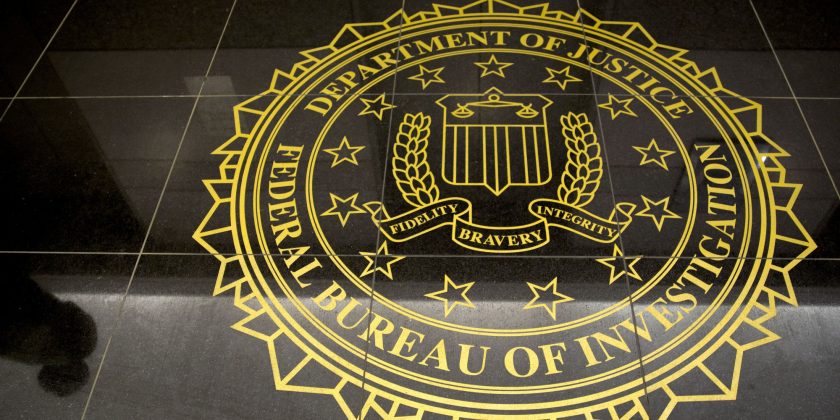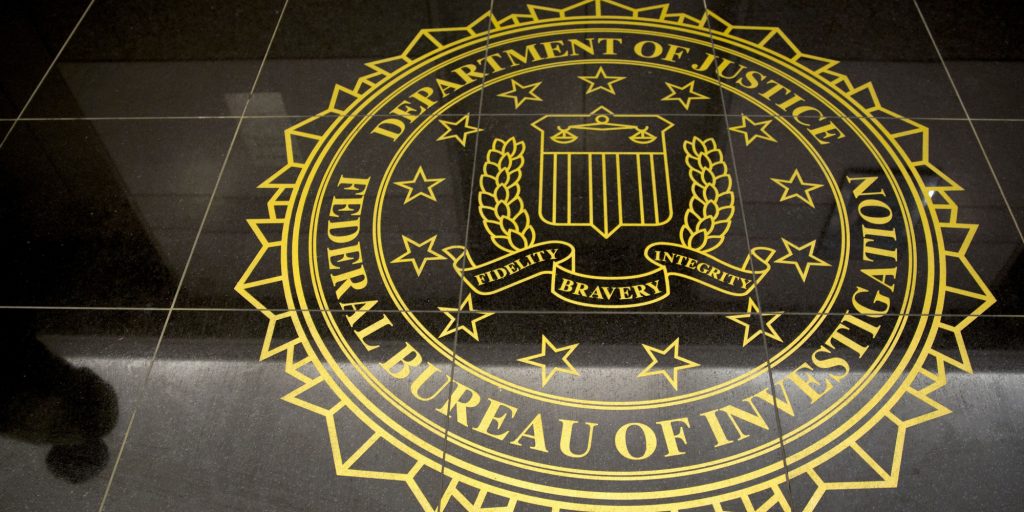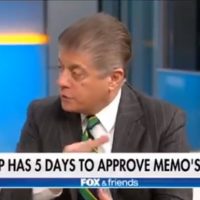Published by: Front Page Mag
By: Joseph Klein
After McCabe’s departure, is Deputy AG Rosenstein the next to go in surveillance scandal?
The House Intelligence Committee, by party-line vote, voted Monday evening to release a potentially explosive memorandum its staff compiled that could blow the lid off the long investigation into alleged collusion – so far unproven – between the Trump campaign and Russia. President Trump has five days to decide whether to approve the memo’s release to the public or seek to block it. Thus far, despite opposition from the Department of Justice, the White House has been signaling receptivity to the memo’s release. The memo reportedly accuses leaders near the top of the Department of Justice and FBI hierarchies of misusing their authority for political reasons to obtain a secret Foreign Intelligence Surveillance Act (FISA) court order to spy on at least one former Trump campaign official, Carter Page.
If the claims said to be set forth in the memo turn out to be true, the original surveillance order approved by the FISA court was likely obtained under false pretenses. Deputy Attorney General Rod J. Rosenstein reportedly sought to perpetuate the charade by approving a renewal application for continued surveillance of Carter Page to the FISA court without proper vetting of the sources used to justify the requested surveillance. The original order reportedly relied at least in part on an unsubstantiated dossier compiled by former British intelligence agent Christopher Steele. The FISA court was allegedly not fully informed either of the dossier’s serious shortcomings or the fact that it had been paid for by the Democratic National Committee and Hillary Clinton’s presidential campaign.
Add the shaky provenance of the dossier used to justify the surveillance of an American citizen to the many text messages authored by two intensely anti-Trump senior FBI officials who were then involved in the Russian collusion investigation and appeared to be looking for a way to sabotage Trump’s candidacy and presidency. Together, they confront the nation with a constitutional scandal that makes Watergate look like child’s play.
The two politically biased senior FBI officials, Peter Strzok and Lisa Page, have been reassigned and are no longer involved in the Russian collusion investigation. However, while they were heavily involved in the investigation as well as with each other as lovers, Strzok wrote a text message to Page, which stated, “I want to believe the path that you threw out for consideration in Andy’s office that there is no way he [Trump] gets elected, but I’m afraid we can’t take that risk. It’s like an insurance policy in the unlikely event you die before you’re 40.” It is widely believed that the “Andy” referred to in the text message was the now former FBI deputy director Andrew McCabe.
On Monday, FBI director Christopher Wray evidently put pressure on Mr. McCabe to step down from his post as FBI deputy director about a month earlier than he intended. Andrew McCabe’s decision to resign rather than be demoted, as Mr. Wray had suggested, came one day after Mr. Wray visited the Capitol and reviewed the House Intelligence Committee memo. Mr. Wray was also reportedly concerned about what the inspector general, who has been looking into some of the FBI’s actions in 2016, may have found, including regarding possible conflicts of interest surrounding Mr. McCabe’s involvement in the Clinton e-mail investigation.
It is worth noting that Mr. McCabe himself had testified to the House Intelligence Committee that all the FBI had been able to corroborate in the Steele dossier was that Carter Page had visited Russia. The fact that Carter Page visited Russia in July 2016 while serving on the Trump campaign in a fairly minor capacity hardly rises to the level of probable cause to suspect that Page was acting as a Russian agent facilitating collusion with the Trump campaign. In short, unless there were other independently verifiable sources underlying the application for the FISA court order, that order’s foundation for approval was built on sand, if not downright deceit. Page may well have just been the most convenient entry point for illegal surveillance of the entire Trump campaign, including of Donald Trump himself.
McCabe, Strzok and Page are not the only individuals caught up in the emerging scandal. According to a report by the New York Times, referring to contentions said to be in the House Intelligence Committee memo, Deputy Attorney General Rosenstein may be in the thick of it as well. Mr. Rosenstein reportedly approved an application for renewal of the FISA authorized surveillance of Carter Page around the time that he appointed Robert Mueller as the special counsel to investigate the allegations of collusion between the Trump campaign and Russia. It is not known if the renewal request was approved by the FISA court. However, the renewal application raises suspicions that Carter Page was again being used by higher-ups at the Department of Justice and FBI to obtain information on the Trump campaign and presidency and thereby prop up what appears to be a potentially tainted investigation. Why renew a FISA application for authority to continue spying on a minor campaign functionary who left the Trump campaign nearly two months before the election and who has had no role since in the Trump transition and presidency? Skeptics are questioning whether Mr. Rosenstein thoroughly vetted the underlying support for both the original and renewal applications before seeking to use the FISA court once again to authorize surveillance of an American citizen for possibly corrupt purposes.
Mr. Rosenstein may have been desperately looking for some new lead to keep alive an investigation that was going nowhere and chose to turn a blind eye to at least one of the primary sources used to justify the surveillance. Whatever his motive, Mr. Rosenstein’s decision to apply for the renewal had the effect of vouching for the discredited opposition-funded Steele dossier peddling unsubstantiated rumors from Russian sources. As Daniel John Sobieski wrote in an article appearing in the American Thinker, this “puts Rosenstein in the position of aiding the efforts of one political party to overturn the results of an election won by the other political party by okaying domestic spying on an American citizen.”
Not surprisingly, Mr. Rosenstein strongly resisted providing the House Intelligence Committee with access to documents from the Department of Justice and the FBI related to the Steele dossier that the committee had requested. He finally relented after facing threats of new subpoenas and possible citations for contempt.
According to sources cited by Fox News, two senior FBI officials have now reviewed the House Intelligence Committee memo, following FBI Director Christopher Wray’s own review last Sunday, and “could not point to any factual inaccuracies.” House staffers reportedly have taken the memo over to the White House for President Trump to review. Hopefully, in the interest of transparency, he will do the right thing and approve its release to the public for the American people to see for themselves the extent to which corruption underlies the highly questionable Russian collusion investigation.
Link: https://www.frontpagemag.com/fpm/269179/fisa-abuse-memo-verge-public-release-joseph-klein
Want more BFT? Leave us a voicemail on our page or follow us on Twitter @BFT_Podcast and Facebook @BluntForceTruthPodcast. We want to hear from you! There’s no better place to get the #BluntForceTruth.








